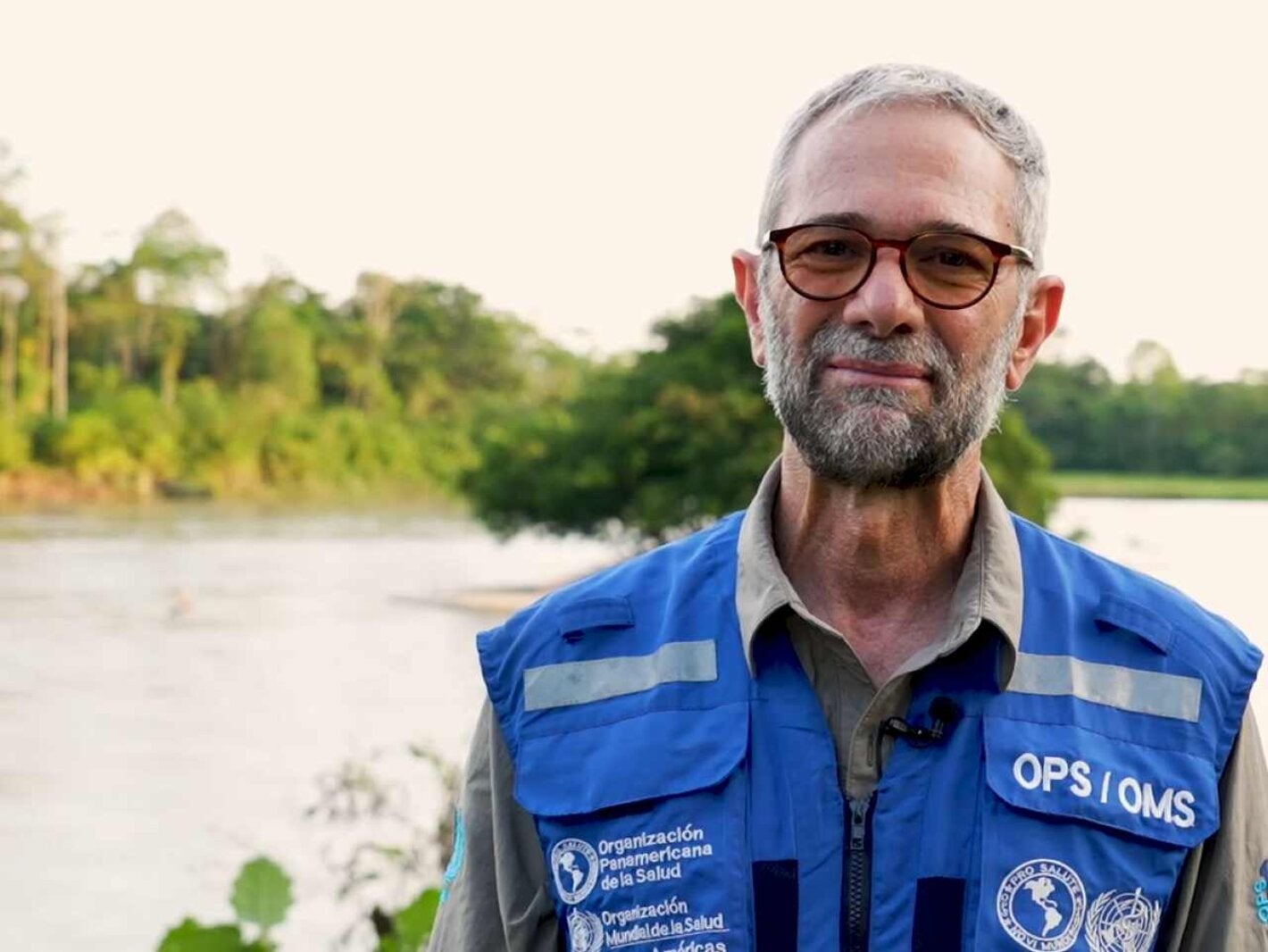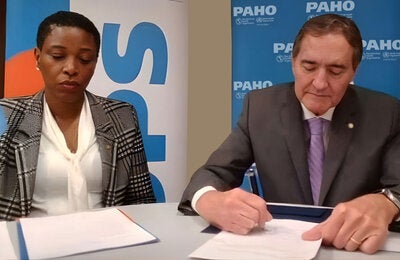
Quito, Ecuador, October 20, 2023 – PAHO disseminated the methodology of knowledge dialogues at the second edition of the United Nations Global Indigenous Youth Forum (UNGIYF), which was held from October 16-23 in Rome, Italy, hosted by the Food and Agriculture Organization (FAO) and organized by the Global Indigenous Youth Caucus. The central theme of this II Global Forum was to advance the recommendations set out in the 2021 Global Indigenous Youth Declaration on Sustainable and Resilient Food Systems.
As part of this international event, PAHO co-organized, together with the Keystone Foundation and the Indigenous People Observatory Network (IPON), a side event entitled Integral Health: Building on the Past, Looking to the Future. Sharing our Stories of Resilience, which was held on October 18. In the event, PAHO/WHO representative in Ecuador, Adrián Díaz, presented PAHO knowledge dialogues methodology and shared the specific experience of Ecuador.
"The knowledge dialogues, or intercultural dialogues, is a PAHO methodology that constitutes a tool for the rescue of ancestral practices and the strengthening of complementarity processes in health care," said Diaz in a video message.
"In Ecuador we have been applying it for some time and in a wide variety of situations, ranging from the response to the pandemic, care of pregnancy, childbirth and puerperium, addressing chronic child malnutrition and its determinants, the promotion of ancestral food practices and the rescue of indigenous food systems, among other issues," said.
Díaz gave the example of PAHO's work in the Amazonian community of Curaray. "We are having a meeting with the health teams and the partners of the pregnant women who are going to give birth in the coming weeks, since they are the ones who will be attending the delivery of their wives. This activity was very enriching because it allowed us to learn about their ancestral practices and share those practices that are useful to us from Western medicine," explained.
"The knowledge dialogues is a horizontal process of teaching and learning based on mutual respect, in which we all come out enriched, we build a complementary model of health care and contribute to preserving the enormous cultural wealth of the native, Afro-descendant and Roma peoples of the Americas," concluded.
The session co-organized by PAHO examined the links between ancestral indigenous knowledge and new technologies to support youth in creating local actions and policies to respond to current and future global threats to food security, health emergencies and well-being.
It also showcased success stories of resilience (such as that of Ecuador, presented by Diaz), with a focus on combining different types of knowledge to address multiple stresses, examining the challenges faced by young people due to climate change, biodiversity loss, ultra-processed foods, pandemics, among others.
In this context, the importance and strength of the intercultural knowledge dialogue approach to improve health and food security outcomes for Indigenous Peoples was addressed and vindicated.
In Ecuador, several advances have been made as a result of the dialogues of knowledge and work with communities, for the articulation of ancestral-traditional medicine with the National Health System. Thus, the Manual for the articulation of practices and knowledge of traditional ancestral midwives and midwives was presented this month, built in a participatory manner with the technical support of PAHO/WHO and the contribution of 280 midwives and midwives and community health agents from all over the country. You can read more about it in this link.



